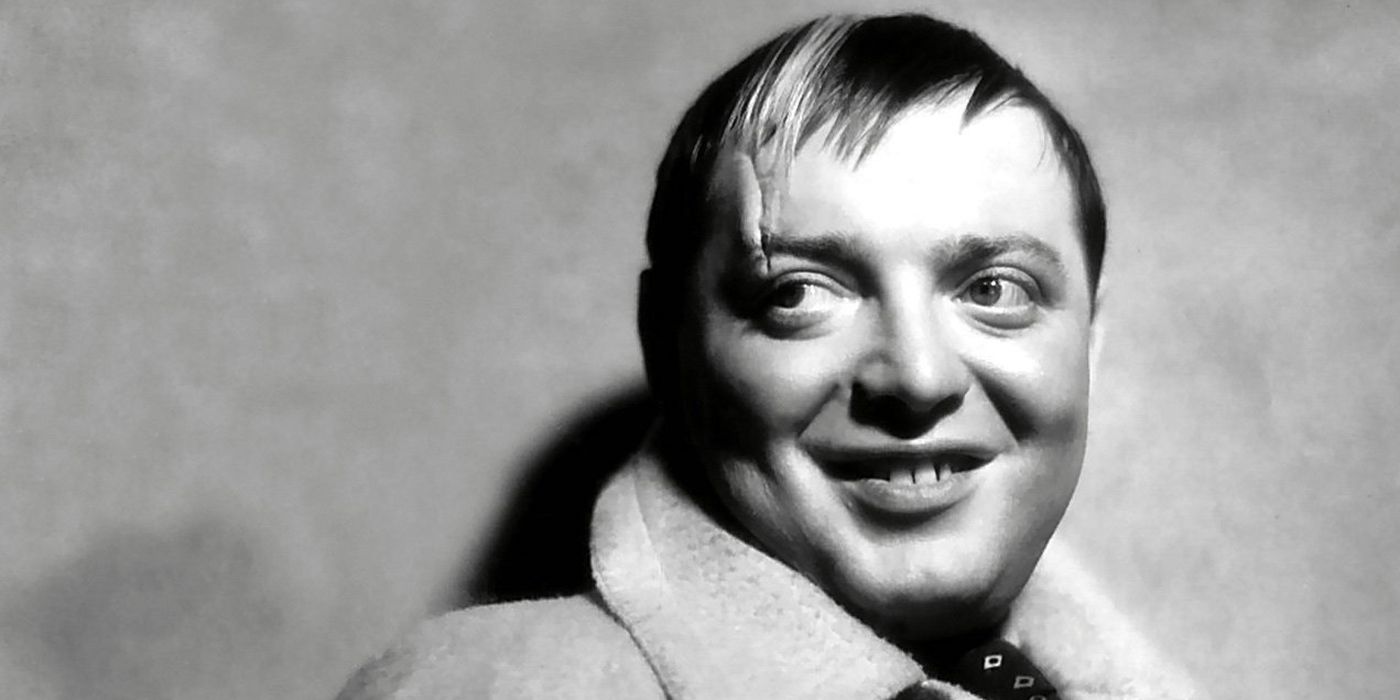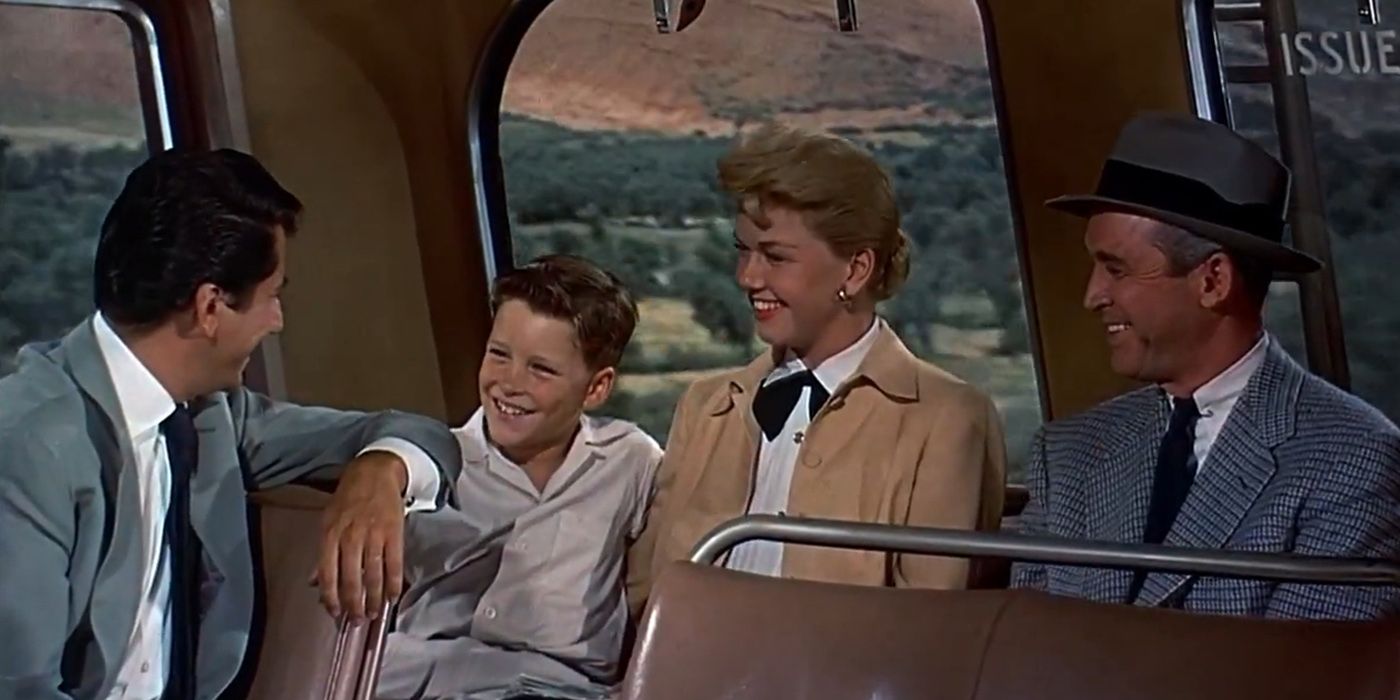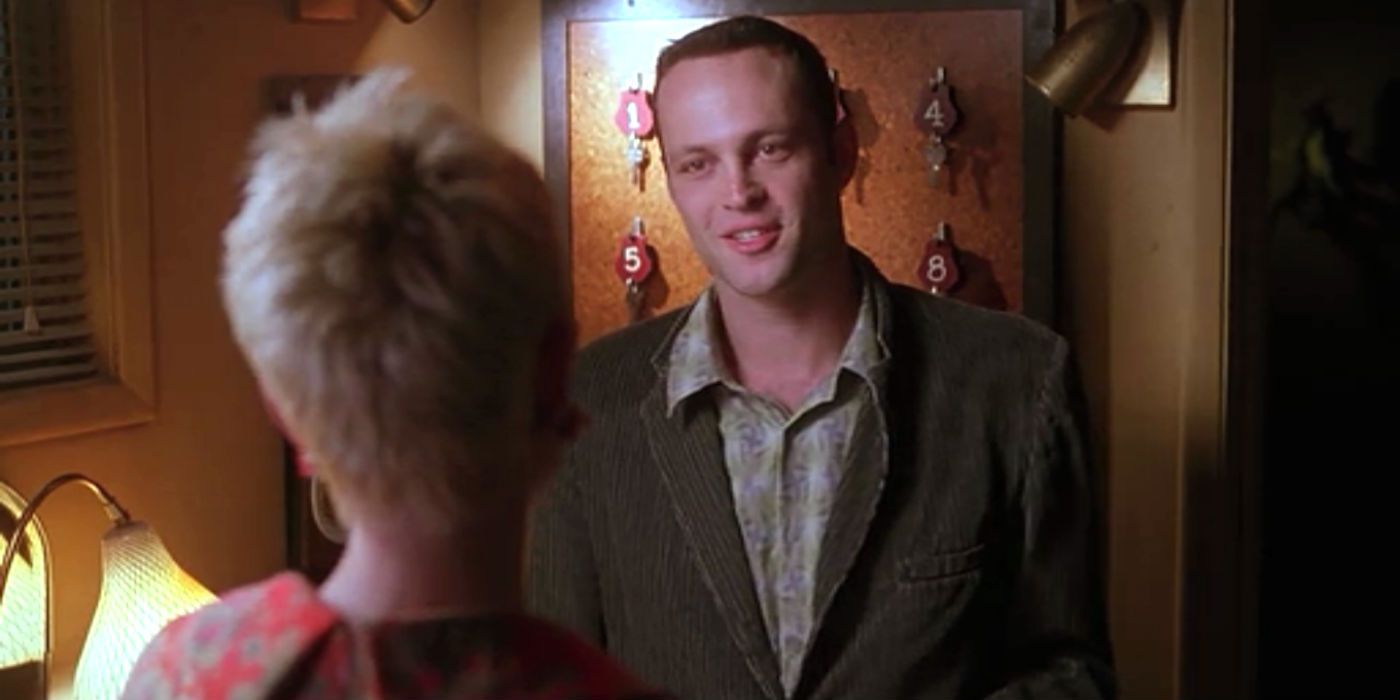With the news of a possible remake of an Alfred Hitchcock classic, it’s worth revisiting the only redo of one of his films that has ever worked, and why that’s the case. Robert Downey Jr. plans to remake Hitchcock’s Vertigo and has even claimed, “I think we can do better.” That quote was certainly a joke considering Vertigo’s reputation as one of the greatest movies ever made, but the question remains: is it possible to make a better version of a Hitchcock film, and if not, why should such a remake exist?
There have been a few fair attempts to remake Hitchcock films throughout the years. However, only one is generally agreed to be a success. The circumstances around that remake do not bode well for Downey’s project. Rather, it points to the need for a unique blend of familiarity, perspective, and affinity with Hitchcock that only grows more difficult as the “master of suspense” becomes more of a legend over time. Still, previous failed attempts at adapting the director’s work can reveal something about how, if at all, a remake could prove worthwhile.
The Man Who Knew Too Much Remake Worked Because Hitchcock Directed Both Movies

It’s a staggeringly ambitious undertaking to attempt to remake an Alfred Hitchcock movie. The director’s adeptness at choosing and developing projects made his films feel somehow essential to him. The stories, the character archetypes, and the meticulous structure always seemed to suit his near-supernatural sense of pacing. Almost every script the director ever worked on was written or adapted specifically for him; while it’s up for debate whether Hitchcock was the greatest director who ever lived, it’s certainly hard to deny that he is the greatest director of Alfred Hitchcock movies.
Such was the case in 1956 when the filmmaker chose to remake his own 1934 suspense thriller, The Man Who Knew Too Much. The film is a remake in only the broadest of senses. They only share titles and an extremely general plot. In both films, a vacationing couple sees their child kidnapped after they stumble into a dangerous conspiracy involving the assassination of a European politician. However, the plots play out very differently. It’s this variation that makes the remake essential to Hitchcock. No other filmmaker would feel so confident dismantling and disregarding the legendary director’s work. Hitchcock was not afraid to admit the mistakes of his younger self.
Why Alfred Hitchcock Remade The Man Who Knew Too Much After 22 Years

There are a handful of reasons why The Man Who Knew Too Much was remade. The most practical reason had to do with his deal with Paramount. Between 1954 and 1958, Alfred Hitchcock was contractually bound to make five movies at the studio. After a highly productive two years that saw him deliver Rear Window, To Catch A Thief, and The Trouble With Harry, the director was tapped for original ideas. However, Hitchcock had been tinkering with the idea of a remake of The Man Who Knew Too Much ever since he made the move from the UK to the U.S. in 1939.
The director’s deeper reasons for desiring the remake can be found in the 1967 book Hitchcock/Truffaut, in which he reflects, “The first version is the work of a talented amateur and the second was made by a professional.” While much of the director’s early work in the UK is laudable, the barrage of masterpieces he made following his move to the U.S. certainly reflects an evolution of his skills and style. The reason why it was this film, and not any of the director’s other UK works, that was remade could be explained by the difference in execution between the two.
The 1934 version of The Man Who Knew Too Much is a fairly light film. The central couple’s upper-class British identity results in a reserved, gentlemanly treatment of the crisis that bends toward the farcical. In the 1956 remake, Hitchcock centers the action on an American couple, using one of his favorite leading men, James Stewart, to strike a more earnest chord. While Hitchcock likely perceived many of his earlier works as amateurish, his remake of The Man Who Knew Too Much seems to signify an awareness of a specific misstep. He’d made a lighthearted romp, realizing only too late that the film ought to have been a sincere thriller.
Why Robert Downey Jr.’s Vertigo & Other Hitchcock Remakes Are Bad Ideas

There’s a long history of directors trying, and failing, to remake Alfred Hitchcock movies. The most notorious example is Gus Van Sant’s shot-for-shot remake of Psycho. It’s a baffling project, one whose rigidity and poor casting make it redundant at best, and deeply inferior at worst. Another well-known case is the Michael Douglas film A Perfect Murder, which attempts to remake Dial M for Murder with a grittier tone that openly deals with sexuality and violence. The film likewise struggles to live up, laboring under the misapprehension that Hitchcock was limited by censorship — as if the director wasn’t in such masterful control of his craft that limitations became enhancements.
In all likelihood, the Robert Downey Jr. Vertigo remake will continue in this vein. The error in common for all of these remakes is the choice of original films. When Hitchcock chose to remake Hitchcock, he wisely chose a lesser film that he was certain could be topped. Dial M for Murder, Psycho, and Vertigo are not only considered some of the best Hitchcock films, but they are also widely believed to be some of the greatest movies ever made. The best way to make a good Hitchcock remake is to be Alfred Hitchcock. The second-best way is to learn from Alfred Hitchcock, a labor that begins with self-awareness.




